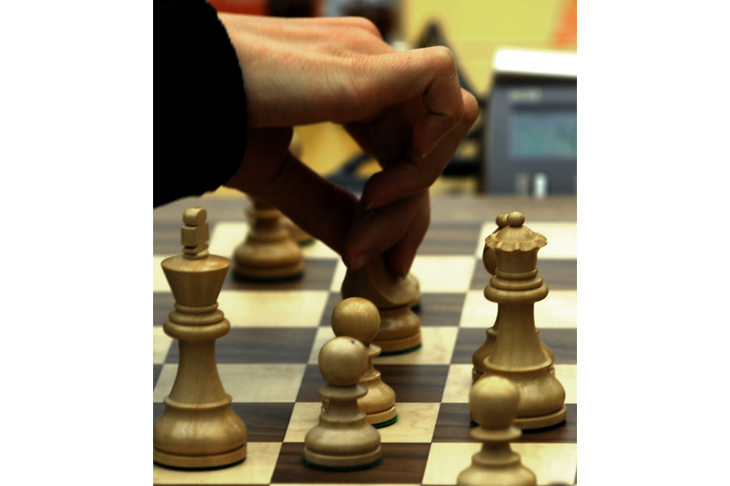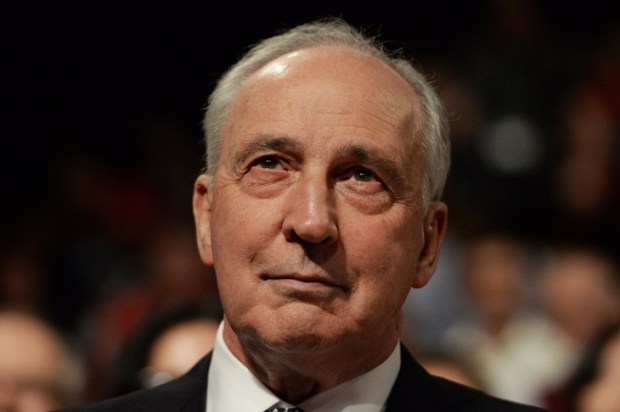The gentle reader will never, never know what a consummate ass he can become until he goes abroad,’ wrote Mark Twain in The Innocents Abroad, his best-selling account of a six-month excursion to the Holy Land, first published in 1869, 150 years ago.
Jolie King and Mark Firkin are the photogenic, 21st century version of these good-natured, wide-eyed travellers, who set out in July 2017, to travel overland from Australia to the UK, documenting their adventures on Instagram and YouTube, and soliciting funds from their 20,000 followers, as is the fashion.
‘Our biggest motivation … is to hopefully inspire anyone wanting to travel, and also try to break the stigma around travelling to countries which get a bad wrap [sic] in the media,’ they wrote.
It would have been safer to go on an African safari, jump out of the vehicle and give the lions a tummy rub to soothe their hurt feelings at the way they have been unfairly stigmatised in the press but at least King and Firkin are still alive. Jay Austin and Lauren Geoghegan, two Americans who quit their jobs to cycle around the world didn’t live to tell the tale. Austin wrote on his blog ‘simply cycling’: ‘You watch the news and you read the papers and you’re led to believe that the world is a big, scary place. … I don’t buy it. Evil is a make-believe concept we’ve invented … ’ Two months later, they were stabbed to death, apparently by ISIS terrorists, one of whom said he killed them because they were Americans and he felt no regret.
It is obvious, to the Western observer, that King and Firkin are guilty of nothing more offensive than the unquenchable, unabashed narcissism that is the hallmark of our age combined with a dangerously naive belief in the fundamental goodness of evil regimes that is strongest in those who know least about them. But he who innocently sins, innocently condemns himself, say the Spanish and having survived travel in Kyrgyzstan, Afghanistan and Pakistan, the couple launched their drone to take yet another selfie in Khojir National Park, an hour’s drive east of Tehran. The only review of Khojir on Tripadvisor warns that although it is ‘a good place for nature lovers, there is a big problem … specially for foreigners because of locating some military things near there.’ Indeed. Alireza Jafarzadeh, wrote in, The Iran Threat: President Ahmadinejad and the Coming Nuclear Crisis in 2007 that Iran’s missiles are being built in an underground town in the nation’s largest tunnel complex in the mountains of Khojir. Movahed Industries builds and warehouses missiles. Hemmat Industries specialises in Shahab ballistic missiles, with a range of up to 2000km — the ‘Israel-hitting missile,’ — which were tested in July. Bakeri Industries builds the Fateh and Nazeat missiles and Karimi Industries builds the nuclear warheads. The whole area is under the direct control of the Iranian Revolutionary Guard, the most powerful organisation in the country, surpassing even the Shia clerical system and asserting itself in the social, political, military and economic sphere. One of its primary roles in protecting the regime is preventing foreign interference.
Into this minefield blundered our innocents, flying their drone. In the West, a drone is a gadget for taking amazing selfies that occasionally causes annoyance to neighbours. In Iran, a drone is a weapon used to blow up the neighbours. The US believes that the attack on Saudi Arabia’s biggest crude oil processing plant, which knocked out half the country’s production last weekend, was carried out by drones and missiles launched from southwestern Iran. But photographs of Khojir’s secret facilities, captured by drone, would pose a threat to the regime if they fell into enemy hands.
The Jerusalem Post published satellite images in March of a factory allegedly producing surface-to-surface missiles in Syria, which is said to be similar to the facility in Khojir. Greater detail would be useful if an attack were being planned.
It is hardly surprising then that King and Firkin were arrested. Or that they have garnered little sympathy online with Iranians or others. One wrote, ‘Why do you look like classic low-level spies?’ (If you want tips on this wikiHow has a helpful entry on ‘how to dress like a spy.’) Another wrote, ‘These two MOSSAD correspondants (sic) are clever people!’
Having fallen into the clutches of the regime, King and Firkin have unwittingly become pawns in Iran’s hostage diplomacy. The Iranians claim to have invented chess and have been playing this new version, with human pieces, since the first days of the Iranian revolution, almost exactly 40 years ago, when students stormed the US embassy on 4 November 1979 and took 90 people, including 66 Americans hostage. One doesn’t want to dishearten the new hostages’ families, but it took 444 days for those first 52 hostages to be released on 20 January 20 1981 and at least five other US citizens are currently in prison in Iran and another is being held but no-one knows where.
Anyone who imagines these horrors befell Firkin and King only because they were foolish and naive, should consider the third Australian hostage — Dr Kylie Moore-Gilbert — a brilliant young academic who graduated with First Class honours from Cambridge, speaks Arabic and Hebrew, and specialises in Persian Gulf states. She was arrested in Iran while attending a conference, for which she had official approval. A colleague who didn’t want to be named as it might put her own safety at risk, said Moore-Gilbert was aware of the dangers she faced but was cautious. Others say she has a strong sense of justice. She has apparently been sentenced to 10 years in prison for spying for a foreign government and has already been held for a year in solitary confinement in the notorious Evin prison.
The good news, perhaps, is that the three are, it seems, bargaining chips. Australia arrested an Iranian woman in 2017 at the request of the US for breaching sanctions by smuggling sensitive technology to Iran. She was extradited to the US just weeks after King and Firkin were detained. The Iranian foreign minister had already called for a swap in April.
Meanwhile, the Iranians are playing a high stakes game of chicken with Shiite militia firing rockets from the outskirts of Damascus towards Israel, the drone and missile attack on the Saudi oil refinery and another tanker seized in the Strait of Hormuz. No doubt Tehran will be top of the talking points when President Trump and Prime Minister Morrison sit down to a state dinner this week. But the fate of our hapless innocents will take second place to keeping the global economy afloat as oil prices spike and avoiding a shooting war in the Middle East.
Got something to add? Join the discussion and comment below.
Get 10 issues for just $10
Subscribe to The Spectator Australia today for the next 10 magazine issues, plus full online access, for just $10.
You might disagree with half of it, but you’ll enjoy reading all of it. Try your first month for free, then just $2 a week for the remainder of your first year.














Comments
Don't miss out
Join the conversation with other Spectator Australia readers. Subscribe to leave a comment.
SUBSCRIBEAlready a subscriber? Log in